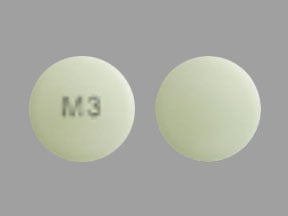
Myfortic Coupons & Savings Card – Discount Prices from $39.96
Brand for: Mycophenolate
My prescription
Edit
180MG, Mycophenolate (180 Tablet Delayed Releases)
Select pharmacy

CVS
$45.70
COUPON PRICE
Albertsons
$39.96
COUPON PRICE
Walgreens
$45.36
COUPON PRICEMyfortic savings card
Show this card to your pharmacist
Albertsons
$39.96
BIN
ID
PCN
GRP
019876
LHAECC5B3E
CHIPPO
LHX
Powered by
Related antimetabolites prescriptions
More prescriptions for organ transplant
Related antimetabolites prescriptions
More prescriptions for organ transplant
Price history for Myfortic (brand) & Mycophenolate (generic)
180 Tablet Delayed Releases, 180MG
Average retail price for Myfortic
Average retail price for Mycophenolate
Average SaveHealth price for Mycophenolate
Our price history data is based on aggregated prescription data collected from participating pharmacies in America. Our prescription data updates daily to reflect the latest price changes. If you notice a missing data point, it means there wasn't sufficient data available to generate a monetary value for that date.
Over the last 12 months, the average discount price of Myfortic is $41.97 using the SaveHealth savings card. That's an average savings of 96.07% on Myfortic with our discount card.
*Retail prices are based on pharmacy claims data, and may not be accurate when we don't have enough claims.
Myfortic (Mycophenolate) dosage forms
Dosage Quantity Price from Per unit 180MG 180 Tablet Delayed Releases $39.96 $0.22 180MG 1 Tablet Delayed Release $9.15 $9.15 180MG 20 Tablet Delayed Releases $12.04 $0.60 180MG 30 Tablet Delayed Releases $13.56 $0.45 180MG 100 Tablet Delayed Releases $24.20 $0.24 180MG 120 Tablet Delayed Releases $27.24 $0.23 360MG 1 Tablet Delayed Release $9.27 $9.27 360MG 20 Tablet Delayed Releases $14.40 $0.72 360MG 30 Tablet Delayed Releases $17.10 $0.57 360MG 100 Tablet Delayed Releases $36.00 $0.36
| Dosage | Quantity | Price from | Per unit |
|---|---|---|---|
| 180MG | 180 Tablet Delayed Releases | $39.96 | $0.22 |
| 180MG | 1 Tablet Delayed Release | $9.15 | $9.15 |
| 180MG | 20 Tablet Delayed Releases | $12.04 | $0.60 |
| 180MG | 30 Tablet Delayed Releases | $13.56 | $0.45 |
| 180MG | 100 Tablet Delayed Releases | $24.20 | $0.24 |
| 180MG | 120 Tablet Delayed Releases | $27.24 | $0.23 |
| 360MG | 1 Tablet Delayed Release | $9.27 | $9.27 |
| 360MG | 20 Tablet Delayed Releases | $14.40 | $0.72 |
| 360MG | 30 Tablet Delayed Releases | $17.10 | $0.57 |
| 360MG | 100 Tablet Delayed Releases | $36.00 | $0.36 |
| 360MG | 120 Tablet Delayed Releases | $41.20 | $0.34 |
| 360MG | 180 Tablet Delayed Releases | $58.52 | $0.33 |
Is Myfortic an immunosuppressant?
Yes, Myfortic is an immunosuppressant. It is used to prevent the body from rejecting a transplanted organ, such as a kidney.
What is the drug Myfortic used for?
Myfortic is used to prevent organ rejection in patients who have received a kidney transplant. It is typically used in combination with other medications, such as cyclosporine and corticosteroids, to suppress the immune system and help the body accept the new organ.
Is Myfortic a chemo drug?
Myfortic is not a chemotherapy drug. It is an immunosuppressant medication used to prevent organ rejection in patients who have received a kidney transplant.
What are the side effects of Myfortic tablets?
Myfortic tablets, which contain the active ingredient mycophenolic acid, can have several side effects. Common side effects include gastrointestinal issues such as nausea, vomiting, diarrhea, and abdominal pain. Patients may also experience headaches, high blood pressure, and increased susceptibility to infections due to the immunosuppressive nature of the medication. Less common but more serious side effects can include blood disorders, liver problems, and allergic reactions. It is important for patients to report any unusual symptoms to their healthcare provider.
What type of immunosuppressant is Myfortic?
Myfortic is an immunosuppressant that contains the active ingredient mycophenolic acid. It is classified as an antimetabolite and works by inhibiting the proliferation of T and B lymphocytes, which are crucial components of the immune response. This helps prevent the body from rejecting a transplanted organ.
